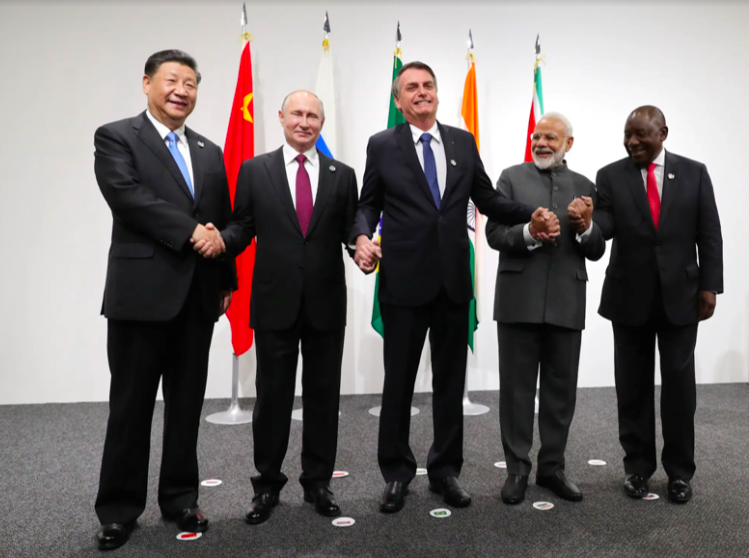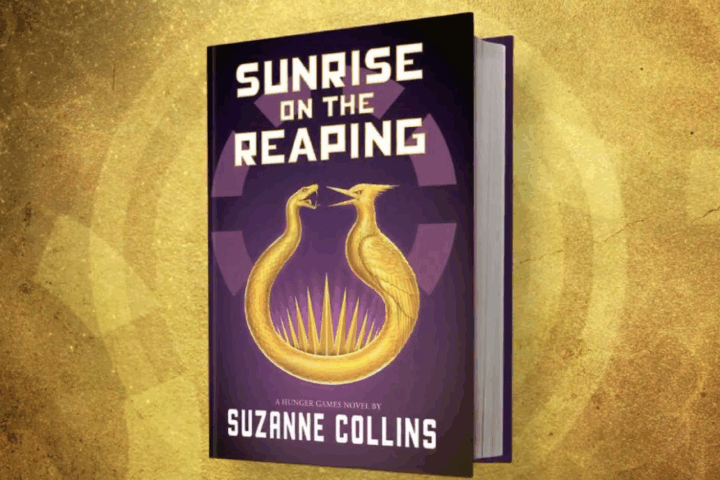As the NATO nations of North America and Europe condemn Russia’s invasion of Ukraine in an unexpected amount of unity, Russia hopes to prepare new global alliances of its own, to challenge what they saw as the unipolar world order that has existed since the fall of the Soviet Union. A desperate and heavily sanctioned Russia looks to the whole world for allies willing to join its movement. In other words, let’s become friends with other powerful heavily sanctioned and desperate nations like China and Iran, who will challenge western dominance. While pursuing fellow powerful pariahs, Russia is also pursuing smaller states by appealing to their histories of being exploited or manipulated by western states. In other words, the world in perception and reality is becoming increasingly multi-polar, and that is being played out in Russia’s zigs and zags.
We must begin in Africa. Russian Foreign Affairs Minister, Sergei Lavrov, began a trip to Africa in late July, traveling to numerous countries in hopes of garnering support. Lavrov labeled a development of Russian-African alliances as one of the “top priorities of Russia’s foreign policy.” Lavrov traveled to certain African nations who have had their ties with the West strained in recent years. One such state is Ethiopia, Africa’s second most populous nation, – which lost trade deals and budget support from the US and EU in 2020 following the conflict in the Tigray region of that country. Another nation in a similar circumstance is Uganda, whose relations with the West have also soured following accusations of corruption, election violence and human rights abuses. As the West turns away nations due to human rights violations, Russia disregards these crimes, and accepts these nations with open arms to work to challenge the West’s world order. Russia has also attempted to make it seem to the people of Africa as if the West is attempting to control Africa and trying to block African nations from self-determination. Russia has similarly emphasized its own lack of historical colonialist injustices in Africa as a way of turning Africa against the West. Russia has also been utilizing social media, and in particular, Twitter, to spew propaganda as a way to turn the African people against the West. The most common theme of these propaganda tweets is the claim that Ukrainians and Europeans are racist against Africans, but Russians are not, with nearly 180,000 tweets claiming such statements. This being an example of “whataboutism” – something that almost all these tweets feature. Russia is not only attempting to bring Africa closer to their sphere of influence, but also Latin America, where Russia has been making their presence clear, right on America’s doorstep.
Russia is beginning to tighten its relationship with some of its Latin American allies – namely dictatorships such as Nicaragua, Cuba and Venezuela. In June of this year, Nicaragua officially reauthorized a limited number of Russian troops to enter the country. In addition, Russia has been supplying Nicaragua with tanks, helicopters, aircraft, naval vessels and other military resources. Russia and its autocratic allies of China and Iran will be holding a sniper competition in Venezuela alongside other nations. Russia has also been supplying the authoritarian socialist Maduro regime of Venezuela with military assistance, even deploying its own troops into Venezuela. Some of Russia’s nuclear-capable bombers stationed in Nicaragua and Venezuela are being used to intimidate American allies in the region. Russia has been accused of conducting “information warfare” inside of American allies in Latin America, mostly aimed at reducing confidence in the democratic institutions of those nations. Colombia has accused Russia of meddling in their elections, and Russia has also been accused of interfering with political protests and affairs in Chile and Mexico. If this is true, and Russia is able to be successful at such endeavors, the Western Hemisphere could see a great shift, one that would be alarming for Western world and the United States in particular.
Russia is also heavily involved in the Middle East, a region that has been at the center of the world stage for decades. Russia’s war in Ukraine has had profound effects on the Middle East in different ways. For one, Egypt, the largest wheat importer in the world, has seen unfortunate effects on its quantity of food due to constraints imposed by war causing Egypt to be almost forced into cooperating with Russia, the world’s largest wheat exporter. However, forced or not, Egypt is establishing growing economic ties with Russia, in addition to supporting Russian backed forces in many proxy wars in the Middle East. These include Bashar Al Assad in Syria and Khalifa Haftar in Libya. A Russian state-owned energy company (Rosatom) has recently begun construction on Egypt’s first ever nuclear power plant. While Egypt is still an American ally, the nation of over 100 million people is noticing the increasing multipolarity of the world. Like in Latin America, Russia maintains a military presence in the Middle East, importantly operating in Hmeimim air base in Syria since 2015, a strategic base overlooking the Mediterranean Sea. Since the war in Ukraine – Russia has also grown closer to Iran – as the nations now share great economic isolation from the rest of the world.
Russia is not completely alone however, and it is working with China to challenge the status quo of the global power balance. The two nations are a part of BRICS – an economic alliance of sorts with “BRICS” being an acronym standing for the member states – Brazil, Russia, India, China and South Africa. The alliance was founded in 2006 as BRIC until 2010 when South Africa was added and it became BRICS. BRICS alongside a similar alliance known as the SCO, (Shanghai Cooperation Organization – China, Russia, Kazakhstan, Tajikistan, Kyrgyzstan, India and Pakistan) hope to establish a multi/bi-polar world order. BRICS is already looking to expand. Earlier this year, Saudi Arabia, Argentina, Egypt, Indonesia, Kazakhstan, Senegal, Nigeria, Thailand and the UAE attended a discussion of a possible BRICS+. Shortly after that, Chinese Foreign Ministry Spokesman Wang Wenbin announced that a decision had been made regarding the expansion of BRICS. Of those attending nations, Argentina has already made a formal application to BRICS.
Alongside the nations, Iran has reportedly considered joining the group as well, alongside a major enemy of its, Saudi Arabia. While it may seem strange that Iran and Saudi Arabia could wish to join the same alliance, China and Russia have been able to unite major enemies before, with the accession of both India and Pakistan into the SCO in 2017. BRICS also already contains India and China who are undoubtedly rivals, and whose rivalry has even turned violent at times. It may also seem odd that Saudi Arabia potentially wishes to join an alliance that challenges the global dominance of its major ally, the United States. However, for Saudi Arabia, joining BRICS would secure its independence from the United States and give Saudi Arabia significantly more leverage when dealing with the U.S. For BRICS, adding Saudi Arabia and Iran would mean that three of the world’s largest oil producers (Iran, Saudi Arabia and Russia) would be working together.
If BRICS could bring along more members and unify on a broad scale, it can become an unstoppable force in global politics that cannot be ignored. On top of this, Russia along with the other BRICS powers map develop a new reserve currency, which as Putin indicated, could be based on a combination of the currencies of the five BRICS nations, “The matter of creating the international reserve currency based on the basket of currencies of our countries is under review.” If this comes to fruition, it could be a real challenge to the U.S. dollar as a global reserve currency, and potentially overtake it, which would be one of the biggest shifts in the global economy in modern history.
Ever since Russia’s war in Ukraine, the nation has moved much farther from its former self, and toward a new Russia, in hope of a new world order. Along with a powerful China, Russia can challenge the United States on a serious level, resulting in a potential global shift to bi-polarity. Even in European nations, there are politicians such as Viktor Orban and Marine Le Pen who are somewhat friendly to Putin. The fact that Putin is supported by the far right of Europe and the far left of Latin America shows that Russia knows how to pander to a wide range of people/nations. Russia is eager to ally with those it can use to benefit its goal of a new world order.






